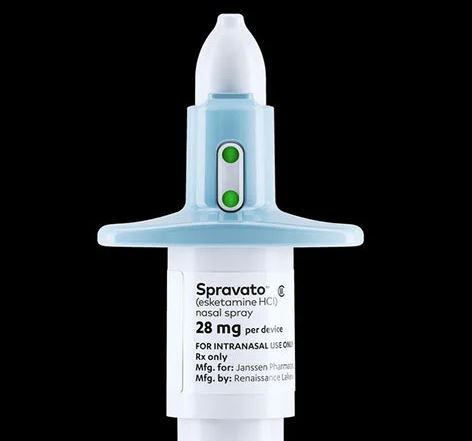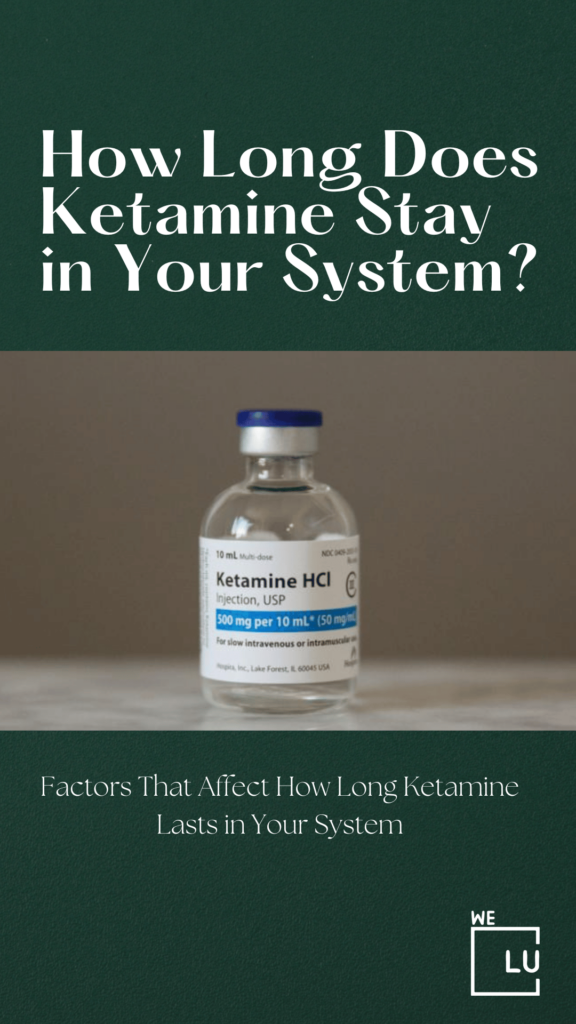Ketamine For Anxiety Guide
Initially synthesized in the 1960s, ketamine is a dissociative anesthetic employed in medical settings to manage severe acute and chronic pain. Shortly after its synthesis, it gained the Food and Drug Administration (FDA) approval in 1970. It became a valuable tool as an induction agent for anesthesia and a procedural sedative for young and adult patients. Additionally, it is widely utilized in veterinary treatment.
Beyond its initial FDA-approved role as an anesthetic, ketamine is now occasionally prescribed to alleviate moderate to severe acute and chronic pain. Its application as an antidepressant has also expanded, especially for patients with anxiety and depression who haven’t responded to other treatments.
Despite its therapeutic applications, ketamine, like many psychoactive drugs, has the potential to be habit-forming if used improperly or excessively. It is crucial to use ketamine only under the supervision of a qualified medical professional and according to prescribed treatment protocols to minimize the risk of addiction or adverse effects. (1)
What Is Ketamines For Anxiety?
Research on the use of ketamine for anxiety has shown encouraging outcomes, indicating that patients can achieve rapid relief from anxiety symptoms within hours of treatment. The study focused on a single therapeutic dose of intravenous ketamine, highlighting its potential as an effective intervention for anxiety disorders, particularly in situations where traditional medications have proven ineffective. These findings propose that ketamine could present a groundbreaking treatment option for individuals grappling with anxiety. (2)
Ketamine Anxiety Treatment Research
Studies on ketamine have revealed its efficacy in addressing diverse anxiety disorders, encompassing social anxiety disorder (SAD), generalized anxiety disorder (GAD), and post-traumatic stress disorder (PTSD).
Ketamine for Social Anxiety and GAD Treatment
Ketamine For Anxiety Study
In a limited study involving 12 patients diagnosed with generalized anxiety disorder (GAD) and social anxiety disorder (SAD), three escalating doses of ketamine were compared to midazolam. Each dose was administered at one-week intervals, with midazolam dosing balanced across patients. The results indicated that ketamine led to dose-dependent improvements in Anxiety Questionnaire scores. Furthermore, the impact of ketamine on reducing theta frequency in specific frontal areas, as assessed through electroencephalogram (EEG), was similar to that observed with traditional anxiolytic medications.
Another investigation focused on the effectiveness and safety of ketamine in 12 individuals with treatment-resistant GAD and SAD, excluding those currently experiencing depression. They followed an ascending single-dose regimen at weekly intervals. Patients reported a reduction in anxiety within one hour of receiving the ketamine dose, and this reduction persisted for up to seven days.
In a subsequent phase of this study, the effects of ongoing maintenance treatment with ketamine were evaluated in a group of patients with GAD and SAD, consisting of 20 individuals. Notably, 18 out of 20 patients reported sustained social and work-related functioning improvements throughout the maintenance treatment. Consequently, the researchers proposed that maintenance therapy “could potentially serve as a therapeutic option for individuals with treatment-resistant GAD/SAD.”
What sets this study apart is the prolonged impact of a single ketamine infusion, lasting an impressive 14 weeks. This suggests that individuals with anxiety disorders might experience more enduring response maintenance compared to those with major depression, where the response typically lasts for only one week.
Ketamine for Anxious Depression
Ketamine For Anxiety And Bipolar Depression
In a study encompassing both anxious and non-anxious individuals with bipolar depression (21 participants in each group), significant antidepressant responses to ketamine were noted in both cohorts. Notably, the anxious and depressed group did not exhibit a discernible disadvantage in terms of antidepressant response compared to the non-anxious group. This discovery is significant as anxiety is generally linked to a less favorable treatment response in bipolar depression when traditional treatments are utilized. Consequently, these findings underscore the necessity for additional research into the distinctive role of ketamine in addressing anxious bipolar depression.
Understanding Anxiety Disorders
Understanding Anxiety
According to the National Institute on Mental Health (NIMH), occasional anxiety is a natural part of life. It’s common to feel anxious when facing workplace challenges, before exams, or when making important decisions. However, anxiety disorders extend beyond fleeting worry or fear.
In individuals with anxiety disorders, the anxiety persists and may intensify over time, underscoring the significance of seeking prompt anxiety treatment. These symptoms can disrupt daily activities, impacting job performance, academic tasks, and interpersonal relationships. Anxiety disorders encompass various forms, including generalized anxiety disorder, panic disorder, and conditions related to different phobias.
Generalized Anxiety Disorder
Those diagnosed with generalized anxiety disorder (GAD) consistently endure elevated anxiety or excessive worry for a minimum of six months. These concerns typically encompass various facets of life, spanning personal health, work-related issues, social interactions, and daily routines. The resulting fear and anxiety can pose significant challenges in multiple domains, affecting areas such as social interactions, academic achievement, and occupational functioning.
Generalized anxiety disorder symptoms include:
- Excessive Worrying: Constant and uncontrollable worry about various aspects of life.
- Restlessness: Feeling on edge or agitated.
- Fatigue: Tiredness, even after adequate rest.
- Muscle Tension: Persistent muscle tension leads to physical discomfort.
- Irritability: Easily becoming irritable or on edge.
- Sleep Problems: Difficulty falling, staying, or experiencing restful sleep.
- Difficulty Concentrating: Trouble focusing or experiencing mind going blank.
- Physical Symptoms: Various physical complaints, such as headaches or stomachaches, without apparent cause.
- Excessive Planning: Overthinking and excessive planning to cope with anxiety.
- Avoidance: Avoiding situations or activities due to anxiety.
Not every individual with generalized anxiety disorder (GAD) will manifest all these symptoms, and the degree of severity can differ from person to person. Seeking advice from a healthcare professional is crucial for an accurate diagnosis and appropriate treatment if you suspect you have GAD.
Ketamine Abuse Warnings
While pharmaceutical ketamine is typically administered in the form of an injectable solution, illegally produced ketamine often presents as a powder or liquid. In recreational settings, the powder is commonly divided into lines and either snorted or smoked alone or in combination with marijuana or tobacco. Liquid ketamine may be injected or added to beverages. Illicitly obtained ketamine is frequently contaminated with other substances, including methamphetamine, amphetamine, Ecstasy (MDMA), and cocaine.
Depending on the method of consumption, the drug’s effects can manifest within minutes. Users may experience distortions in their perception of sight or sound and a profound sense of detachment from reality.
Hallucinations are prevalent under the drug’s influence and can last for approximately 30 to 60 minutes. Additionally, users may undergo a sensation of being disconnected from their own body, commonly known as entering the “k-hole.”
Other associated effects include feelings of restlessness, melancholy, cognitive difficulties, memory lapses, and even loss of consciousness. Users may become unresponsive to external stimuli and display involuntary rapid eye movements, dilated pupils, excessive salivation, tearing, and muscle rigidity.
Ketamine For Anxiety And Depression
Some common uses of ketamine:
- Anesthesia: Ketamine is a general anesthetic in medical procedures and surgeries.
- Pain Management: It can be used for pain control, especially in severe or chronic pain cases.
- Depression Treatment: Ketamine is being explored for severe depression, mainly when other treatments have not been effective.
- Anxiety Disorders: Some studies suggest ketamine may potentially treat certain anxiety disorders.
- Veterinary Medicine: Ketamine is frequently used as an anesthetic agent in veterinary medicine.
The administration of ketamine should always be conducted under the guidance and supervision of a medical professional, given its potential for misuse and associated side effects.
Ketamine For Anxiety Side Effects
The utilization of ketamine for anxiety or other medical purposes may lead to various side effects. Common side effects associated with ketamine use may include:
- Nausea and Vomiting: Ketamine can cause stomach discomfort and nausea.
- Dissociation: Ketamine is a dissociative anesthetic, and some people may experience a feeling of detachment from their body or reality.
- Changes in Perception: Users might experience alterations in their perception of time, space, or surroundings.
- Increased Heart Rate: Ketamine can lead to an elevated heart rate, which can be concerning for individuals with certain medical conditions.
- Dizziness: Some users may feel dizzy or lightheaded.
- Confusion: Ketamine can cause confusion or disorientation.
- Elevated Blood Pressure: It may temporarily increase blood pressure in some individuals.
- Blurred Vision: Vision changes, such as blurred vision, can occur.
- Psychological Effects: Ketamine can induce vivid dreams, hallucinations, or other psychological effects.
- Dependence and Addiction: Prolonged or misuse of ketamine can lead to dependence or addiction.
Trained medical professionals should exclusively carry out the administration of ketamine within a controlled clinical environment. Self-administration or misuse of ketamine can pose significant health risks and side effects. It is imperative to consult with a healthcare provider before contemplating ketamine treatment for anxiety.
Ketamine Drug Interactions
Informing your healthcare provider about all medications and substances you are currently taking is vital to ensure the safe and effective use of ketamine. This list is not comprehensive, as interactions can vary based on individual factors and dosages. Always seek professional medical advice when contemplating ketamine treatment.
- Alcohol: Combining ketamine with alcohol can increase the risk of adverse effects and respiratory depression.
- Sedatives: Other sedative medications alongside ketamine can intensify sedation and respiratory depression.
- Antidepressants: Certain antidepressant medications, especially monoamine oxidase inhibitors (MAOIs), can interact with ketamine and lead to adverse effects.
- Opioids: Combining ketamine with opioids can increase sedation and respiratory depression, which can be dangerous.
- Antihypertensive Medications: Ketamine may counteract the effects of some medications used to lower blood pressure.
- Stimulants: Combining ketamine with stimulants like amphetamines or cocaine can increase the risk of adverse effects.
- Antipsychotic Medications: Some antipsychotic drugs may interact with ketamine, potentially leading to increased side effects.
- Muscle Relaxants: Using muscle relaxants alongside ketamine can enhance muscle weakness and sedation.
- Tramadol: Combining ketamine with tramadol, a pain medication, can increase the risk of seizures.
- NMDA Receptor Antagonists: Other drugs that affect NMDA receptors, such as memantine, may interact with ketamine.
Ketamine Therapy For Anxiety Vs. Other Medications
Ketamine for anxiety presents several significant distinctions when compared to traditional medications. Firstly, ketamine tends to act more swiftly, providing relief to some individuals within hours, whereas many conventional anxiety medications may take weeks to exhibit effectiveness.
Ketamine can be beneficial for individuals who have not responded favorably to other treatments, offering a promising option for those with treatment-resistant anxiety disorders. However, ketamine therapy typically involves periodic sessions and may not provide a lasting solution. Additionally, the potential for misuse and side effects, including dissociation, should be carefully considered, and ketamine treatment should only be administered under the supervision of a qualified medical professional.
In summary, ketamine therapy represents an alternative approach to anxiety treatment, particularly in cases where standard medications have proven insufficient. (3)
Different Types Of Ketamine Treatment For Anxiety
There are primarily two types of ketamine treatments for anxiety. Both modalities have demonstrated promise in mitigating anxiety symptoms, particularly in cases where traditional treatments have proven ineffective.
- Ketamine Infusion Therapy: In this approach, ketamine is administered intravenously in a controlled medical setting. Patients receive a series of infusions over several weeks, and the effects are closely monitored. This method is often used for severe cases of anxiety.
- Ketamine Nasal Spray (Esketamine): Esketamine, a ketamine derivative, is available as a nasal spray under the brand name Spravato. It is used in conjunction with an oral antidepressant and is administered under medical supervision. It is typically prescribed for treatment-resistant depression but may also have potential benefits for anxiety.
How Fast Does Ketamine Work For Anxiety?
Ketamine can often deliver rapid relief from anxiety symptoms within hours of administration, offering a potential quick-acting treatment option for specific individuals.
The pharmacodynamics of ketamine, or how it works in the brain, is complex. It doesn’t solely impact one type of chemical or receptor but affects multiple brain areas. This complexity results in a wide variety of effects. Ketamine’s primary influence on the brain is linked to its interaction with the neurotransmitter glutamate. Glutamate is crucial for brain function as it facilitates communication between nerve cells, serving as a fundamental component in the brain’s operations.
In high doses, ketamine can block glutamate throughout the brain, slowing down nervous system communications, which is why it is effective as a sedative. When the brain’s communication networks slow down, sedation or sleepiness is experienced. However, the effects of ketamine on glutamate appear to be dose-dependent, meaning the drug’s quantity can alter specific impacts. In low doses, ketamine can increase glutamate levels, promoting more connections between neurons. This can result in various effects and side effects.
One effect may be alleviating problems arising from poor communication between neurons, such as depression. Chronic stress and mood disorders can lead to a loss of certain neural connections, potentially explaining symptoms like loss of interest, social withdrawal, and apathy in individuals with depression. Ketamine, by increasing communication, may assist individuals in recovering those lost connections.
However, the heightened glutamate levels may also contribute to dissociative symptoms, hallucinations, and psychosis. While the use of low-dose ketamine for anxiety and depression appears promising, it may also entail uncomfortable and disturbing side effects. (4)

How To Find Ketamine For Anxiety Near Me?
Before embarking on ketamine therapy for anxiety, it is crucial to consult with trained medical professionals and thoroughly research your options. To locate ketamine therapy for anxiety near you, follow these steps:
- Consult a Healthcare Provider: Discuss your anxiety symptoms with your primary care physician or a mental health specialist who can guide suitable treatment options.
- Ask for Referrals: Request recommendations from your healthcare provider for centers offering ketamine therapy in your area.
- Online Search: Utilize online search engines, mental health directories, or dedicated websites to search for ketamine therapy providers near your location.
- Read Reviews: Read patient ketamine therapy anxiety reviews and testimonials to gain insights into the experiences and outcomes of individuals who have undergone ketamine therapy.
- Contact Clinics: Contact the clinics or practitioners you identify and inquire about their services, availability, and whether they offer ketamine therapy for anxiety.
- Insurance Coverage: Check with your health insurance provider to determine if they cover ketamine therapy, and if so, inquire about in-network providers.

Skip To:
Learn More:
- Ketamine Street Name, Nicknames, & Slang
- Ketamine Side Effects, Negative Impact on the Brain and Body
- How Long Does Ketamine Stay in Your System? Uses & Timeline
- Ketamine Holes, The Out-of-Body Effects of the Drug, & Abuse
- Does Ketamine Therapy Get You High? Ketamine Uses & Abuse
- Is Ketamine an Opioid? Ketamine Uses, Effects, and Abuse
- Ketamine Withdrawal Symptoms, Timeline, and Detox Treatment
- Dangers of Mixing Alcohol and Ketamine, Effects, and Abuse
- Top 10 Tips On How To Stop Anxiety After Drinking Alcohol
- Anxiety Treatment, Therapy, Medications, and Coping Tips
Get Help. Get Better. Get Your Life Back.
Searching for Accredited Drug and Alcohol Rehab Centers Near You? We Level Up Texas Is Ready To Help!
Even if you have failed previously and relapsed, or are in the middle of a difficult crisis, we stand ready to support you. Our trusted behavioral health specialists will not give up on you. When you feel ready or just want someone to speak to about therapy alternatives to change your life call us. Even if we cannot assist you, we will lead you to wherever you can get support. There is no obligation. Call our network hotline today.
FREE Addiction Hotline – Call 24/7Efficacy Of Ketamine Therapy For Anxiety
Anxiety disorders stand among the most prevalent mental health challenges in the United States, impacting individuals of all ages. This spectrum of disorders includes phobias, panic attacks, post-traumatic stress disorder (PTSD), and other psychiatric conditions marked by distressing anxiety symptoms. Fortunately, anxiety disorders are often treatable through a combination of medication and psychotherapy, effectively alleviating associated symptoms.
Unfortunately, a significant portion, approximately 30-40%, of individuals dealing with anxiety do not find relief from conventional therapeutic approaches despite exploring various treatments. Nevertheless, the field of mental health treatment is continually evolving, with some off-label medications and therapies showing promise. Ketamine treatment is a notable example. Initially approved by the FDA as an anesthetic, ketamine is gaining recognition for its role in managing symptoms of treatment-resistant depression. More recently, it has demonstrated potential in addressing anxiety as well. (5)
Ketamine Treatment For Anxiety And Phobias
Ketamine is believed to assist in reducing phobias by modulating brain activity and neurotransmitter systems. It acts on glutamate receptors in the brain, enhancing synaptic plasticity, which can assist individuals in facing and processing their phobic triggers.
The capacity of ketamine to induce a dissociative state enables patients to disconnect from their physical selves, becoming more attuned to their emotions and memories. This aids in understanding and confronting the origins of their phobias. Additionally, ketamine’s rapid onset of action can swiftly alleviate phobic symptoms, presenting a potentially practical approach to phobia treatment, particularly in cases of treatment-resistant phobias.
Ketamine Social Anxiety And GAD Treatment
Ketamine exhibits promise as a potential treatment for social anxiety disorder (SAD) and generalized anxiety disorder (GAD). Studies indicate that ketamine can swiftly alleviate anxiety symptoms in individuals with these conditions, often manifesting within hours of administration.
This benefit is particularly notable for those who have not responded favorably to traditional medications. Nevertheless, it is essential to emphasize that ketamine treatment should only be undertaken under the supervision of a qualified medical professional in a controlled clinical setting. (6)
Ketamine Infusion Anxiety And OCD Treatment
Ketamine infusion therapy is an unconventional use of ketamine to address mental health issues like depression, anxiety, and OCD. The term “infusion” indicates that ketamine is administered intravenously rather than in pill form. This therapy gained popularity in the United States before FDA-approved medications, such as ketamine for this purpose, became available. While ketamine infusion therapy was legally permitted due to its FDA approval as an anesthetic, its off-label use for OCD and depression treatment was often not covered by insurance.
The effects of ketamine infusion therapy typically result in an initial reduction in depression symptoms within four hours, with peak effects occurring around 24 hours. However, these effects may diminish after about seven days, requiring patients to return for therapy approximately every ten days to two weeks. While a single infusion provides longer-lasting benefits than a single dose of a conventional antidepressant, it entails outpatient clinic visits for each session. In contrast, FDA-approved ketamine, available as Spravato, offers the convenience of home treatment options.

Ketamine infusion is also utilized in the management of chronic pain symptoms. In hospital settings, ketamine is employed for individuals facing challenging-to-treat pain. It can be used in conjunction with substances like morphine or other opioids, or it may be employed as a standalone treatment. (7)
Ketamine For Anxiety Reviews And Facts
Microdosing Ketamine For Anxiety
Microdosing ketamine entails the consumption of tiny, sub-therapeutic doses of the drug over a period. Some individuals have reported using microdoses of ketamine for anxiety management, as it may offer subtle mood-enhancing and anxiety-reducing effects without inducing dissociation or impairment.
However, the safety and effectiveness of microdosing ketamine for anxiety are not well-established, and it should only be considered under the guidance and supervision of a qualified healthcare provider.
Ketamine Schedule
Ketamine is categorized as a Schedule III controlled substance in the United States under the Controlled Substances Act.
This classification indicates that it has a recognized medical use but also poses the potential for abuse and dependence. Consequently, its usage is closely regulated, and it can only be administered by licensed medical professionals in approved clinical settings, primarily when employed for treatments like anesthesia or ketamine infusion therapy for mental health conditions.
Ketamine Results For Anxiety
Ketamine has demonstrated promising outcomes in alleviating anxiety symptoms, especially in individuals with treatment-resistant anxiety disorders. Studies suggest that ketamine can deliver swift relief from anxiety, often within hours of administration, surpassing the speed of action observed with many traditional medications. Testimonials claiming, “Ketamine cured my anxiety” abound. However, while the immediate effects are encouraging, the long-term safety and efficacy of ketamine for anxiety treatment are still under investigation, emphasizing the importance of utilizing it only under the guidance and supervision of qualified medical professionals.
Benefits Of Ketamine Infusion For Anxiety
Experience relief from symptoms within hours, not weeks. Research indicates that a single therapeutic IV ketamine dose can elicit an antidepressant and anti-suicidal effect within just 4.5 hours, offering significant advantages for individuals who haven’t found relief through conventional medications. These positive effects endure 24 hours after administration, with 40% of participants reporting continued benefits seven days post-infusion. This stands in stark contrast to SSRIs, which typically require weeks to achieve a therapeutic impact.
Gain insights into disordered thought and behavior patterns. Ketamine, categorized as a dissociative anesthetic, can induce a mild, trance-like state in users, fostering a sense of detachment from their physical bodies. Despite the initial impression, many patients describe this sensation as calming and less psychedelic than expected. Beyond the surface experience, the benefits of this dissociative state extend. It enables patients to disconnect from their physical selves, facilitating a deeper connection with their emotions and memories. This enhanced connection aids individuals in comprehending and addressing the root causes of their symptoms.
Ketamine Therapy Cost
The expense of ketamine treatment for anxiety can fluctuate significantly based on various factors, such as the type of treatment (infusion or nasal spray), the number of sessions needed, and the location of the treatment center. Ketamine infusion therapy sessions typically cost between $400 to $800 or more per session, and a complete course of treatment may encompass multiple sessions. Nasal spray formulations like Spravato can also incur expenses, with prices averaging around $600 to $900 per treatment session. Engaging in discussions with the treatment provider about the specific costs and available payment options is crucial, including exploring potential insurance coverage.

Get Your Life Back
Find Hope & Recovery. Get Safe Comfortable Detox, Addiction Rehab & Dual Diagnosis High-Quality Care.
FREE Addiction Hotline – Call 24/7Ketamine And Anxiety Statistics
Ongoing research and clinical trials are exploring the efficacy of ketamine in various psychiatric conditions, including depression, PTSD, OCD, and more. However, despite its medical uses, ketamine has a history of misuse and recreational use, leading to concerns about its potential for addiction. The safety of ketamine administration, especially in clinical settings, is a critical concern, and guidelines have been established for its responsible use.
40 Million
Anxiety disorders in the US were estimated to affect over 40 million adults.
Source: CDC
1%
Ketamine addiction in the US remains low, as 1% or less of the population abuses ketamine.
Source: NCBI
40%
Around 30-40% of individuals grappling with anxiety find no relief from conventional therapeutic approaches despite trying various treatments.
Source: NCBI

Ketamine For Depression And Anxiety
Ketamine has demonstrated effectiveness in relieving symptoms of depression and anxiety, presenting itself as a promising treatment option. Studies indicate its potential positive impact on anxiety disorders, especially in instances of treatment-resistant anxiety. Although ongoing research aims to establish its long-term efficacy and safety, ketamine therapy provides hope for individuals grappling with these complex mental health conditions.
Stop taking medications that don’t work for you.
A noteworthy percentage, approximately 30%, of individuals diagnosed with an anxiety disorder may exhibit resistance to conventional treatments such as SSRIs. This observation is particularly significant considering the large number, over 40 million adults in the United States alone, dealing with anxiety. In contrast, ketamine has shown effectiveness as a treatment option for those who do not find relief through traditional medications. (8)
First-Class Facilities & Amenities
World-Class High-Quality Addiction & Mental Health Rehabilitation Treatment
Rehab Centers TourRenowned Addiction Centers. Serene Private Facilities. Inpatient Rehab Programs Vary.
FREE Addiction Hotline – Call 24/7Proven recovery success experience, backed by a Team with History of:
15+
Years of Unified Experience
100s
5-Star Reviews Across Our Centers
10K
Recovery Success Stories Across Our Network
- Low Patient to Therapist Ratio
- Onsite Medical Detox Center
- Comprehensive Dual-Diagnosis Treatment
- Complimentary Family & Alumni Programs
- Coaching, Recovery & Personal Development Events
Reclaim Your Life From Anxiety and Ketamine Addiction, Co-Occurring Disorders
When an individual is diagnosed with both a psychiatric and a substance use disorder, it indicates the presence of co-occurring conditions. While these conditions can exist independently, their coexistence in the same individual often intensifies symptoms associated with both disorders.
It’s not uncommon for someone with co-occurring conditions to experience more severe signs and symptoms compared to someone dealing with only one of these disorders. The simultaneous diagnosis of a psychiatric and substance abuse disorder in one person characterizes a co-occurring disorder. We Level Up, a mental health and addiction detox rehab, offers professional and safe care to address these co-occurring disorders, ensuring comprehensive treatment for you or your loved one.
Please don’t hesitate to contact us to talk with one of our experienced counselors. We can provide relevant information about your condition, and our specialists are well-equipped to empathize. Rest assured that every call is free and treated with the utmost privacy and confidentiality. (9)
World-class, Accredited, 5-Star Reviewed, Effective Addiction & Mental Health Programs. Complete Behavioral Health Inpatient Rehab, Detox plus Co-occuring Disorders Therapy.
FREE Addiction Hotline – Call 24/7End the Addiction Pain. End the Emotional Rollercoaster. Get Your Life Back. Start Drug, Alcohol & Dual Diagnosis Mental Health Treatment Now. Get Free No-obligation Guidance by Substance Abuse Specialists Who Understand Addiction & Mental Health Recovery & Know How to Help.
Top Ketamine For Anxiety Dose FAQs
-
Does ketamine help with anxiety?
Ketamine exhibits promise in alleviating anxiety symptoms, especially in individuals with treatment-resistant anxiety disorders. Research indicates that ketamine can deliver swift relief from anxiety, often within hours of administration. However, further extensive clinical trials are necessary to solidify its efficacy and safety for the treatment of anxiety.
-
Can ketamine cause anxiety?
While ketamine is under exploration as a potential treatment for anxiety disorders, it is essential to note that it can also induce anxiety as a side effect, especially during the “come-up” phase. This phase may involve heightened heart rate, confusion, or hallucinations. Individuals considering ketamine treatment for anxiety should consult with qualified medical professionals. These professionals can assess their specific condition and closely monitor their response to ketamine therapy, minimizing the risk of adverse effects.
-
How does ketamine help anxiety?
Ketamine is thought to ease anxiety by regulating brain activity and neurotransmitter systems. Acting on glutamate receptors enhances synaptic plasticity, potentially facilitating the processing and resolution of anxiety-inducing thoughts and emotions. Additionally, ketamine’s capacity to induce a dissociative state enables individuals to disconnect from their physical selves, potentially assisting in exploring and understanding the root causes of their anxiety.
-
How much is the cost of ketamines for depression and anxiety?
The expenses associated with ketamine treatment for anxiety and depression therapy can fluctuate significantly, influenced by factors like the type of treatment (infusion or nasal spray), the required number of sessions, and the geographical location. Ketamine infusion sessions usually vary from $400 to $800 or more per session, and a complete course of treatment may encompass multiple sessions. Similarly, nasal spray formulations like Spravato can incur costs, with prices averaging around $600 to $900 per treatment session. It is essential to discuss specific costs and available payment options with the treatment provider while also checking for potential insurance coverage.
-
What is a low dose ketamine for anxiety?
A low dose of ketamine for anxiety typically involves administering the drug in smaller, sub-therapeutic amounts over time. Some individuals have reported using microdoses of ketamine for anxiety management, as it may provide subtle mood-enhancing and anxiety-reducing effects without causing dissociation or impairment. However, the safety and effectiveness of microdosing ketamine for anxiety are not well-established, and it should only be considered under the guidance and supervision of a qualified healthcare provider.
Learn About Anxiety Disorder Facts & Anxiety Treatment Programs That Can Help You
Effective treatment for anxiety often requires a personalized approach that considers an individual’s specific needs. This commonly involves evidence-based therapies like cognitive-behavioral therapy (CBT), which assists individuals in acquiring effective coping strategies. Medications such as selective serotonin reuptake inhibitors (SSRIs) and serotonin-norepinephrine reuptake inhibitors (SNRIs) can also be successful in managing anxiety.
However, the decision on the treatment approach should be made in collaboration with a qualified healthcare provider who can evaluate the individual’s unique situation and preferences. (10)
Do you have questions about ketamine addiction or anxiety treatment in general? Call our helpline 24/7.
Start a New Life
Begin with a free call to an addiction & behavioral health treatment advisor. Learn more about our dual-diagnosis programs. The We Level Up treatment center network delivers recovery programs that vary by each treatment facility. Call to learn more.
- Personalized Care
- Caring Accountable Staff
- World-class Amenities
- Licensed & Accredited
- Renowned w/ 100s 5-Star Reviews
We’ll Call You
Search We Level Up Texas Ketamine for Anxiety Detox, Mental Health Topics & Resources
Sources
[1] Banov MD, Young JR, Dunn T, Szabo ST. Efficacy and safety of ketamine in managing anxiety and anxiety spectrum disorders: a literature review. CNS Spectr. 2020 Jun;25(3):331-342. Soi10.1017/S1092852919001238. Epub 2019 Jul 24. PMID: 31339086. Ketamine for Anxiety-related topics.
[2] Taylor JH, Landeros-Weisenberger A, Coughlin C, Mulqueen J, Johnson JA, Gabriel D, Reed MO, Jakubovski E, Bloch MH. Ketamine for Social Anxiety Disorder: A Randomized, Placebo-Controlled Crossover Trial. Neuropsychopharmacology. 2018 Jan;43(2):325-333. Doi 10.1038/npp.2017.194. Epub 2017 Aug 29. PMID: 28849779; PMCID: PMC5729569. Ketamine for Anxiety-related topics.
[3] Bandelow B, Michaelis S, Wedekind D. How To Manage Anxiety? Treatment of anxiety disorders. Dialogues Clin Neurosci. 2017 Jun;19(2):93-107. DOI: 10.31887/DCNS.2017.19.2/bbandelow. PMID: 28867934; PMCID: PMC5573566. Ketamine for Anxiety-related topics.
[4] How To Manage Anxiety Disorders – National Institute of Mental Health (NIMH) Available from: https://www.nimh.nih.gov/health/topics/anxiety-disorders Ketamine for Anxiety-related topics.
[5] Mental Health Conditions: Depression and Anxiety Management- Centers for Disease Control and Prevention (CDC) Available from: https://www.cdc.gov/tobacco/campaign/tips/diseases/depression-anxiety.html
[6] Prevention and Treatment of Anxiety, Depression, and Suicidal Thoughts and Behaviors Among College Students – Substance Abuse and Mental Health Services Administration (SAMHSA)
[7] How To Manage Anxiety? Mental Health and Mental Disorders – Healthy People 2030 Available from: https://health.gov/healthypeople/objectives-and-data/browse-objectives/mental-health-and-mental-disorders Ketamine for Anxiety-related topics.
[8] Anxiety Disorders – Office of Women’s Health Available from: https://www.womenshealth.gov/mental-health/mental-health-conditions/anxiety-disorders
[9] Anxiety Management – VA Mental Health – Veterans Affairs Available from: https://www.mentalhealth.va.gov/anxiety/index.asp
[10] Indicators of Anxiety or Depression Based on Reported Frequency of Symptoms During Last 7 Days – Centers for Disease Control and Prevention (CDC) Ketamine for Anxiety-related topics.






